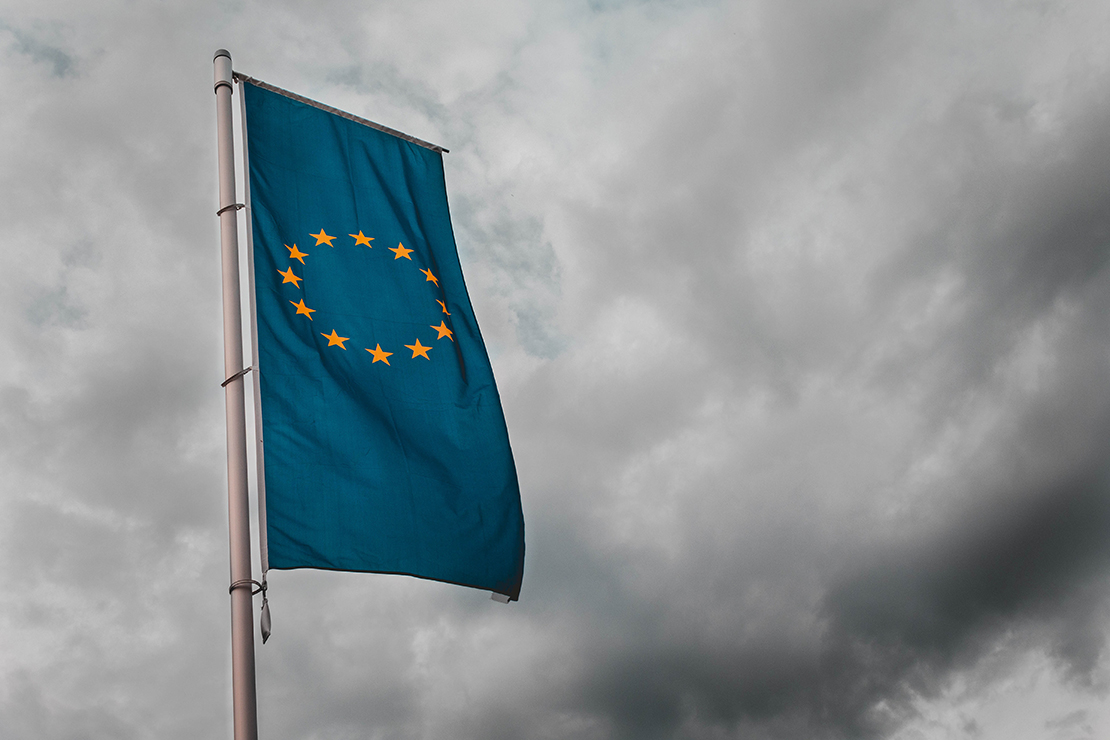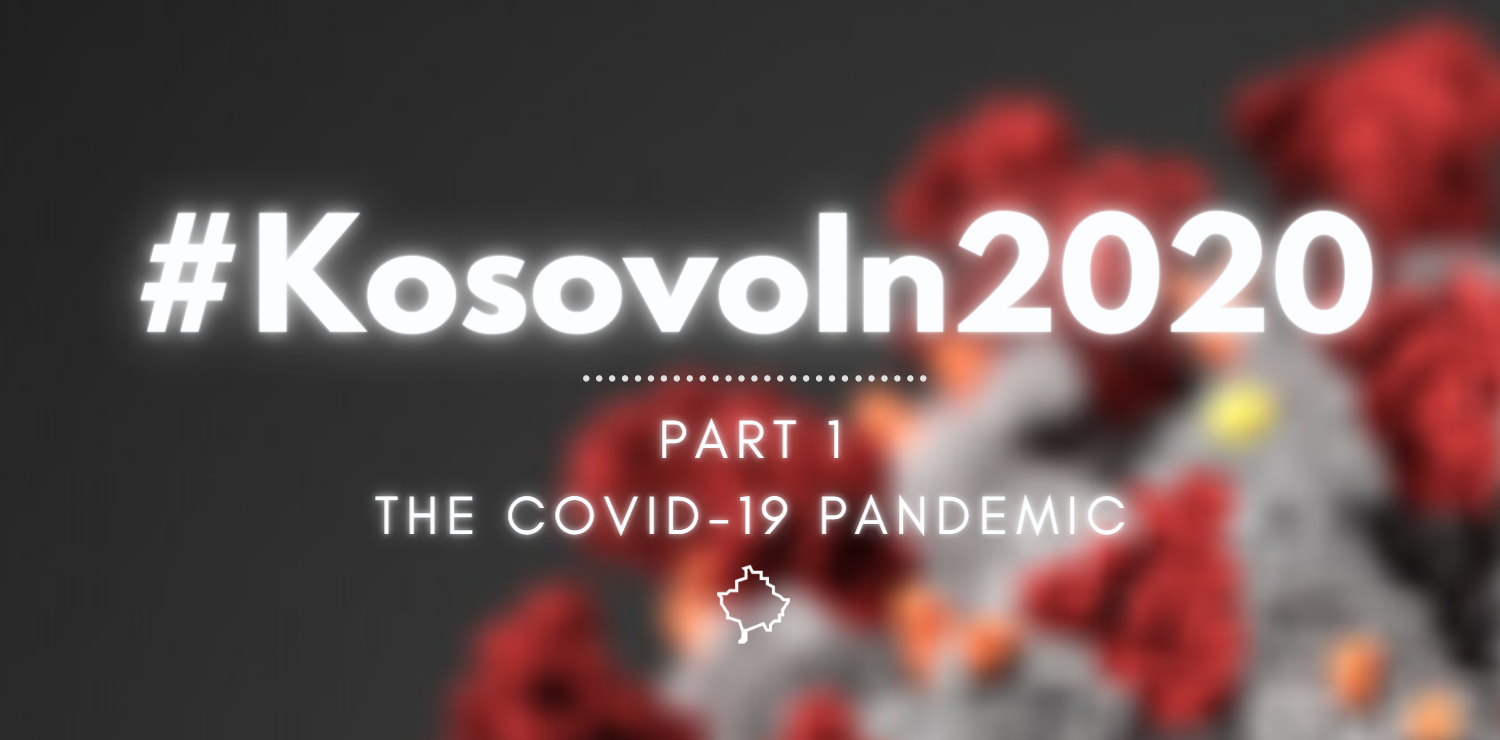Authors

Marije Renate Luitjens-Tol
peace and conflict studies, human rights, identity studies and political science
Alejandro Esteso Perez
European integration and enlargement issues, political relations with EU Member StatesSPECIAL EDITION – SERIES OF ESPRESSO INSIGHTS
2020 has been a year to remember, especially in Kosovo. In this Espresso.Insights series, GLPS recaps and analyses the main events in the fields of politics, law and society that have affected the country this year and identifies the challenges ahead of 2021. In part 1, Marije Renate Luitjens-Tol and Alejandro Esteso Pérez explore the irruption, management and consequences of COVID-19 in Kosovo.
#KOSOVOin2020: The COVID-19 pandemic
By: Marije Luitjens Tol and Alejandro Esteso Perez– International Research Fellows at GLPS
The rise and spread of COVID-19 throughout the year 2020 has taken an undeniably heavy toll in Europe and worldwide. In Kosovo, the pandemic has brought about an unprecedented emergency that has laid bare the country’s weak healthcare system, while triggering a first-level political and legitimacy crisis, and contributing to accentuate its lingering social divisions. Although the health burden is expected to diminish in 2021 in the context of the development and distribution of an effective vaccine, Kosovo will have to struggle in order to mend its tattered infrastructures and restore its citizens’ trust in domestic institutions.
From health to politics: the two faces of the pandemic
A new government was inaugurated in Kosovo on the 3rd of February. The composition of the executive reflected the outcome of the October 2019 parliamentary elections, when left-wing Vetëvendosje (VV) mustered 29 seats in the Assembly and thus became the most voted party. VV formed a coalition with the Democratic League of Kosovo (LDK), which came only one seat behind. The inauguration of this coalition government, led by VV head Albin Kurti, marked the first time for VV in power—a complete breakthrough in Kosovo’s traditionally conservative political scene.
The new government’s first days in office seemed promising—not least due to Kurti’s outspoken anti-corruption stances, which challenged Kosovo’s clientelist-oriented political status quo. However, the emergence in February of an unprecedented crisis shattered all plans: COVID-19 had entered Europe, and the first contagion hotspot had been identified in Italy. High infection and death rates ensued in countries like Spain, France and the United Kingdom, bringing the overall number of confirmed cases up to 1,500 in Europe alone.
Kosovo’s first two COVID-19 cases were not confirmed until the 13th of March, rendering it one of the last countries in Europe to record a first infection. Ahead of this, the government was hailed for taking quick action to counter the spread of the virus. By the time the first case was officially announced, measures were already in place: schools were closed, public gatherings were banned, and air and land access into the country was restricted. The 14th of March was, however, the first day of a nation-wide lockdown that was set to last for almost two months. Citizens could only leave their homes in order to buy medicines or food supplies, or to receive medical care.
On the 23rd of March, the government announced new measures further restricting the freedom of movement between specific hours of the day, following a relatively small surge in confirmed COVID-19 cases. In spite of the stricter measures, the executive did not declare a state of emergency—a decision rejected by President Hashim Thaçi, who urged citizens and security forces to disobey the newly-approved rules. Under the belief that such measures—including the introduction of a curfew—were in flagrant violation of the constitution, the president submitted the case to the Constitutional Court, which ruled in his favour. As a result of this, the curfew rules were retracted on the 13th of April.
In the meantime, a no-confidence vote against the government seemed to be brewing after the prime minister’s decision to dismiss LDK interior minister Agim Veliu, which aggravated the already-strained relations between the two coalition partners. It was evident that Kosovo’s political actors were instrumentalizing the health emergency to discredit each other.
Many nights of pots-and-pans protests ensued in March, demonstrating how the political tensions had mounted in the country and evidencing the citizens’ fatigue and frustration. With the population unable to take to the streets during curfew hours, they resorted to political protest from their windows and balconies. For several evenings in a row, citizens used pots and pans to protest the lingering political debacle that was threatening to bring down the government right in the middle of a pandemic. Ultimately, an LDK-sponsored no-confidence vote passed in the Assembly and the VV-led executive fell on the evening of the 25th of March.
In early May, as had been envisaged by the ousted government—which, by then, was still acting—the de-escalation phase started. Movement restrictions had begun to ease gradually, and with it came the opening of restaurants and the restoring of air and land connections in and out of Kosovo. The inauguration of the new government in early June was followed by its immediate decision to withdraw movement restrictions, rendering Kosovo one of the deadliest countries in the world. In spite of the re-establishment of a curfew on the 7th of July, the incoming administration failed to ensure a safe reopening of the economy without triggering a new health crisis. The premature opening of businesses and economic life was carried out without an effective communication strategy, leading to a spike of infections and deaths during the months of July and August.
Due to the high number of cases, contact tracing was dropped—making it hard to stop infection clusters. In addition to this, very few tests were run and there was an overall failure to provide testing for the general population. The situation also proved particularly challenging for Kosovo’s minority communities, as the domestic authorities initially failed to provide the translation of health updates and other details in languages other than Albanian, laying bare the deep divisions in the country.
2021, the calm after the storm?
The number of new COVID-19 infections started falling in the beginning of September. While the new government had prioritized the reopening of the economy, it went on to do so with a series of reservations: it ordered mandatory masks in public, the suspension of cultural activities indoors, the prohibition of gatherings and the establishment of limited business hours for bars, cafés and restaurants. A second contagion wave, however, arrived over the autumn months, when infection and death rates were off the charts.
COVID-19 has deranged Kosovo in a political, economic and social sense. Not only has it severely affected the rate of implementation of norms and nation-wide reforms, many of which are of a critical social importance, but it has also directly impacted the economies of households and businesses. The foremost challenge for 2021 will be that of overseeing and ensuring the correct implementation of the Economic Recovery Package, which is yet to be fully formalized, so as to urgently cater for those in dire need. The government will moreover be expected to guarantee the establishment of safe working environments and to provide for stable online education. With the numbers still increasing, it remains crucial to strive for the right measures to counter a further spread of the pandemic, while not increasing the risks for further socio-economic deprivation.
Share article
Related Espresso Insights
March 4, 2024
Espresso.Insights
Passport Hangover: What’s next after Spain’s Kosovo breakthrough?

January 16, 2023
Espresso.Insights
Recognized but not supported: Hungary's stance on Kosovo's EU bid

Latest Publications
April 24, 2024
Policy Analysis
Tracking Kosovo's Commitment: Monitoring Adherence to the Venice Commission Rule of Law Checklist in ...
April 8, 2024
Policy Analysis
Reflecting on the Third Year of Kurti II: Setbacks and Achievements in Rule of Law, Public Administr ...
March 22, 2024
Policy Analysis






